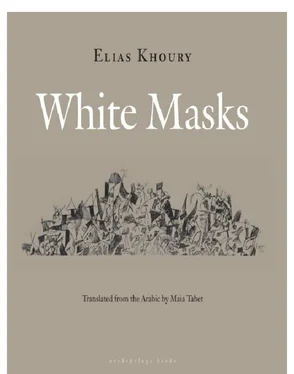Now, the wife confirmed that the band had grown tight on his finger since, like most of his fellows around the Mediterranean, Khalil Ahmad Jaber had put on weight after marriage, and it had become increasingly difficult for him to slip his wedding band off. This almost led to a potentially serious situation, as Khalil’s finger started to feel numb. When he told the doctor that he thought the circulation in his finger was being impaired, the doctor agreed, and suggested that a jeweler snip off the culprit band. But Khalil wouldn’t hear of it. He was, after all, a conservative man, that is, a man of ingrained habit: he always slept in the same position and sat in the same place at the table. That’s why he refused. The wedding band stayed on his finger, he seemed to get used to it being tight, and he never, ever, took it off.
Given that it is crystal clear that he was tortured and his ring finger was severed, the aforementioned hypothesis is obviously false.
So, what then?
What indeed?
The truth is, I don’t know; and even if I did, it wouldn’t change anything. Suppose we did know that X was the murderer, would that make things better? Would it enable us to try X in court? Would it make Khalil’s wife happy? Surely not, it would only compound her misery.
Moreover, I am absolutely convinced that the whole thing isn’t worth more than the effort required to read about it, and even that is a moot point. An astute reader will probably consider it a waste of time to read stories everyone knows about, while another kind of reader will think that there are better and more exciting stories than this one. And they’d both be right, and so would you, and so would each and every one of us. . as likely as it could be your fault, it could be ours, it could be anyone’s, or everyone’s… And truth is indivisible, they say!
This whole thing isn’t worth any more than the effort required to read about it, and with all due respect, Khalil Ahmad Jaber was only one of millions of honorable citizens in this country who risk death on a daily basis. So, should his death be of any greater import?
Investigating his story, I have had no other aim than to “entertain, please, and pass the time,” to borrow a phrase from Abu Hayyan al-Tawhidi, our revered storytelling master — the very same one who threw all his books into the river after burning them, such was his despair over the human condition, his disenchantment with the world, and his scorn for his epoch and its rulers.
However, what if we assume that Khalil Ahmad Jaber didn’t die, that he is still alive now, trudging through the streets of Beirut, trying to erase and whitewash the walls? Well, what if we did?
Some might say there’d be no harm in that, why should anyone want to kill him for it? Others might say the exact opposite. And yet others might be baffled by the whole matter and feel unable to say anything.
There are then three possibilities. And the Lord alone knows.
1
An allusion to a verse from Surat Youssef in the Qur’an, rendered somewhat inaccurately by the speaker. The original statement speaks of a specific woman rather than all women.
2
A term of respect, from Ottoman times, similar to the English “Sir.”
3
Naba’a was a northeastern suburb of Beirut which grew into a slum settlement during Lebanon’s boom years in the 1970s. Largely populated by Muslims, it was “ethnically cleansed” in the initial phase of the civil war by Christian militias trying to consolidate homogeneously populated territory.
4
The plural of feda’i, the popular term used to refer to Palestinian fighters. Literally, it means one who sacrifices himself, especially for his country.
5
A well-known method of torture whereby the victim is hung upside down by his feet, like a plucked chicken.
6
A Palestinian refugee camp on the northeastern outskirts of Beirut, which grew to be a slum-like settlement and then became an armed stronghold that was eventually overrun by right-wing Maronite Christian militias, following a protracted siege. Numerous atrocities were committed during and immediately after the fall of the camp, causing many Palestinian fighters to escape into the surrounding woods and mountains.
7
The incident that signaled the outbreak of the civil war. On Sunday, April 13, 1975, a bus full of Palestinians drove through a militant Christian neighborhood of Beirut and shots were exchanged outside a church. Both sides claimed the other attacked first.
8
Al-Kata’eb is Arabic for the Phalangists, the right-wing party that spearheaded the coalition of Christian militias antagonistic to the Palestinians and the “National Movement.”
9
The notorious secret service agency that, under the “reformist” regime of General Chéhab in the 1960s, suppressed political freedoms. Surviving into the 1970s, the Deuxième Bureau became synonymous with extra-judicial abuses.
10
Widely-used term to refer to the Syrian-led Arab Deterrent Forces that entered Lebanon ostensibly as peacekeepers.
11
Kamal Jumblatt was the leader of the Druze community in Lebanon until his assassination in 1978. In addition to being a sectarian strongman, he was the leader of the National Movement.
12
The secret police or intelligence services.
13
A historic street, as it became the “Green Line” that divided Beirut in two during the civil war.












